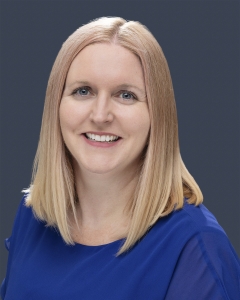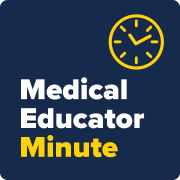People Profile – Liz Joseph

Liz Joseph, Senior Director, HR Lead
Most residents and fellows know Liz (Senior Director, HR Lead) as the primary contact for HR, benefits, and payroll questions, as well as for the GME Parental, Caregiver, and Medical Leave program. She is often recognized for sending timely reminder emails about important deadlines.
Liz has lived in Alexandria, Virginia for more than 20 years, up the east coast from Miami where she spent most of her early years.
Her path into healthcare began unexpectedly after meeting someone from MGUH at a wedding. With a background in advertising, the world of GME was new to her, but she embraced it, starting as a GME Coordinator at MGUH and working her way up to Senior Director. Liz is passionate about supporting residents and fellows at this exciting stage of their careers.
“I love working with residents and fellows,” she says. “It is such an exciting time in their career. I hope that the GME leadership team helps them feel comfortable and at ease as they embark on their career journey.
One of the most rewarding aspects of her work is onboarding interns. While it’s a busy time of year, it’s also one of the most exciting. Meeting the interns in person at orientation, after months of preparation, and seeing their enthusiasm as they begin their training is what makes the effort truly worthwhile.
Liz knows HR plays an important role in a thriving GME program. Her team oversees the entire employment lifecycle for residents and fellows, from hiring to graduation. They begin the onboarding process several months before the start date, ensuring smooth transitions into training programs without delay. This includes conducting background checks, drug screenings, visa processing, and handling payroll, benefits, and wellness support.
Her success at MedStar Health is largely attributed to the collaborative and experienced GME team, many of whom have been with the department for more than 15 years. This collective expertise and teamwork ensure that goals are met, and the department functions smoothly.
Her perseverance is evident outside of work, too. Liz has completed three marathons: Marine Corps, Chicago, and the Nashville Rock and Roll Marathon.



